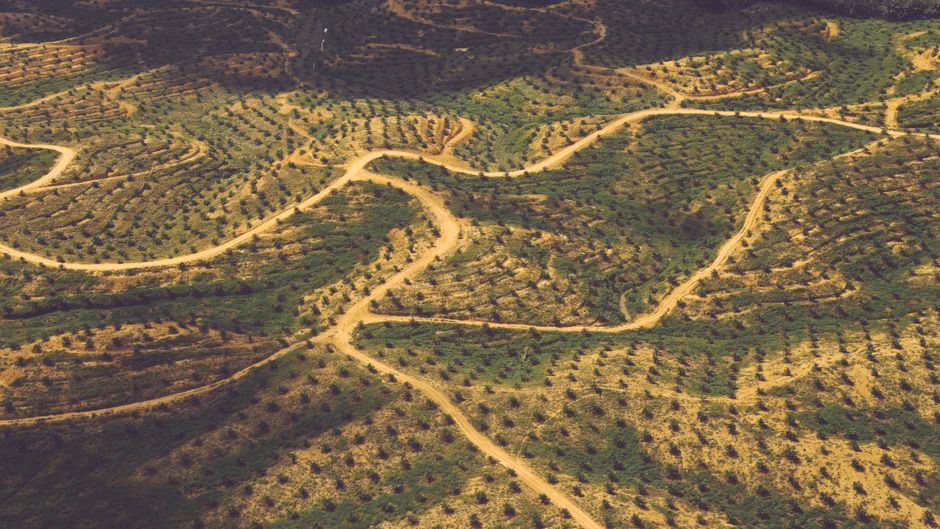Many countries economies’ depend on agriculture and the yield that comes from their soil. When a certain crop is produced on a large scale and sold for profit, it is known as a crash crop. One such crash crop grown for its lucrative profits are palm trees, which produce palm oil. The palm trees produce a red fruit that is quite rich in oil. The oil taken from the fruit is then refined in factories and used in various diverse products. It can be used in food production, and if you take a look at the information labels found on packaged food, you will find it everywhere. Not only is it widely used in food, it is also used as a fuel. From those palm trees, the oil is taken through the chemical reactions of transesterification and it is turned into a biodiesel.
“Oil palms, as these trees are called, have very high oil yields—some of the highest of any crop used for bio-fuel (plant-based fuel) production. A 10,000 square meters can produce up to 7 tons of oil, many times what would be produced from the same area of corn, soy, or canola.”
This edible vegetable oil is not only versatile, it is also a high yielding crop. It grows in tropical areas around the equator and 85% comes from Malaysia and Indonesia. This is great news for these countries’ economies, however, the impact it has on the environment is quite dismaying.
Large areas of rainforests have been cleared to allow the growth of palm trees. The problem here is that by clearing these areas the habitats of the animals in that area are destroyed. Many people also live in those forest areas and they have to move since palm oil companies take over the land, and this sometimes leads to conflicts.

The clearing process itself leads to terrible pollution, since many companies opt to burn the area they will use. All the smoke that is emitted from these burnings not only affects the immediate area, but also other surrounding areas. Therefore, when forest fires take place in Indonesia, people in Malaysia and Singapore are also affected.
Even though the production of palm oil can be very dangerous, there are people who are trying to make this process more sustainable. A group of environmental non-profits and palm oil companies joined together in 2004, in order to set up the Roundtable for Sustainable Palm Oil (RSPO).
RSPO goes by certain principles and criteria that ensure that the negative effect of the palm oil production is avoided. They target illegal deforestation, the destruction of biodiversity, soil erosion, water loss, chemical pollution as well as unfair working conditions. As of today only 15% of global production is certified by them, however, Darrel Webber, general secretary of the roundtable, insists that the scheme is changing the industry's mindset. “Initially, palm oil companies bought land and thought only about how many bulldozers they needed to clear it”, he says. Now, ask any CEO, they actually say, “Where can I find high conservation value experts before I send my bulldozers?”
Check out those videos about palm oil production and its effect on the environment:
References
http://kids.mongabay.com/elementary/palm_oil.html
http://www.theguardian.com/sustainable-business/palm-oil-production-social-environmental-impacts